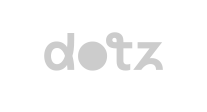-
Our Solutions
-
People and Career
-
About Us
The use of pirated, outdated, or poorly structured software is one of the major vulnerabilities in a company’s security. Therefore, it is crucial that all programs are updated and protected.
Physical failures refer to the company’s environment, including factors like building installations, access controls, document storage security, etc. Natural failures are related to disasters such as fires, power outages, floods, and others, which also require contingency plans.

Even with secure system operations and properly updated software, structural or hardware issues such as poorly configured servers, lack of firewalls, antivirus, and backups, insufficient professionals to manage network infrastructure, and lack of user control can still pose risks and vulnerabilities to information security.
One of the biggest weaknesses in information security is human error, committed by employees due to inattention, lack of knowledge, or even malicious activities. These errors include executing malicious files (often arriving via email) and negligence with passwords (creating weak codes or sharing them carelessly), among others.

















































Cloud computing is, without a doubt, one of the best allies in information security, playing a fundamental role in preventing vulnerabilities.
Automating vulnerability management is crucial to ensure that security keeps pace with your company’s growth and IT asset inventory. Today, there are numerous platforms, software, and tools available for this purpose.
The ideal approach is to invest in a solution that meets the demands and capabilities of your business. And, of course, always choose reliable and well-known companies and brands in the market.






And accelerate your company’s transformation with strategy and security!





